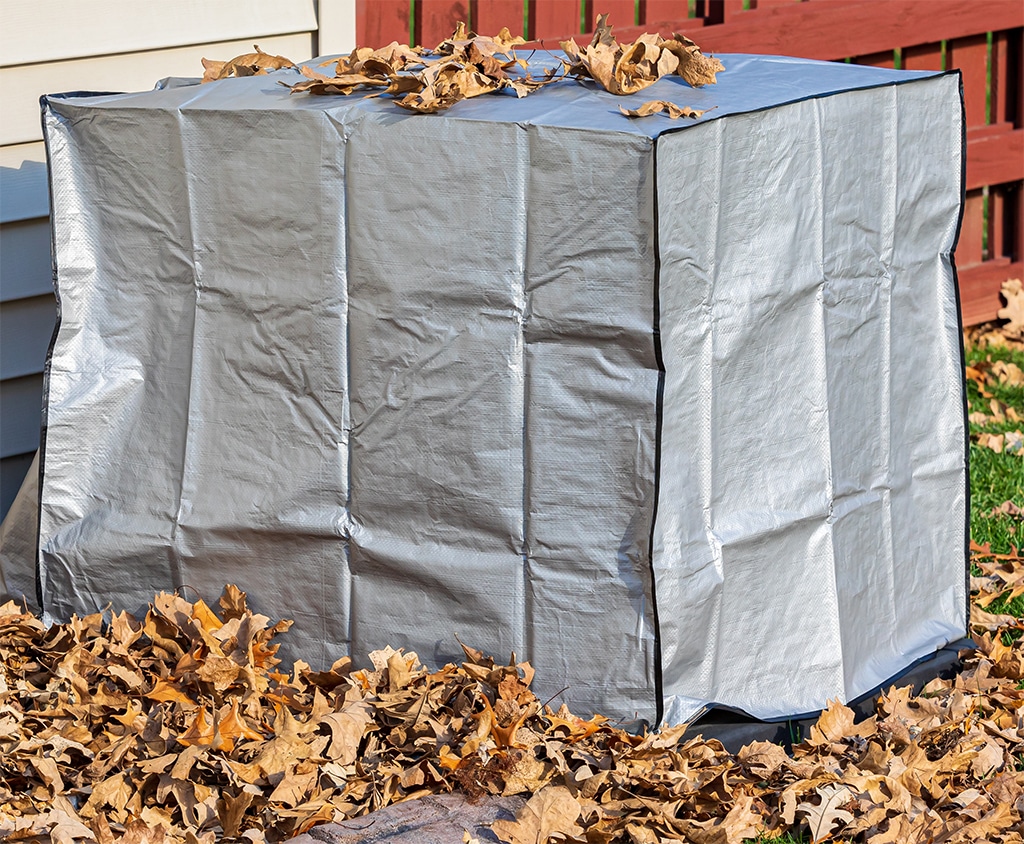
Is An Outdoor AC Unit Cover Worth It? Advice From Your Air Conditioner Installation Expert | Arlington, TX
Immediately the temperatures start dropping near fall; many homeowners start taking steps to winterize their homes. Although home insulation and weatherproofing are among the most popular, the other often debated topic is covering the air conditioner, especially the outdoor unit. Similarly, extreme heat may reduce your air conditioner’s efficiency during summer. Most homeowners call air conditioner installation technicians to protect their Arlington, TX air conditioning systems with shades or covers. However, some people also think this might do more harm than good.
Should You Cover the Air Conditioner?
It may not be clear whether to cover the air conditioner or not. Unfortunately, there’s no direct answer to this, and you should weigh the benefits and drawbacks to arrive at an individual conclusion. Alternatively, you can consult an air conditioner installation technician on the pros and cons of covering the air conditioner. They can help you make a choice that will benefit you and protect your HVAC. This article covers all that you should know about outdoor AC unit covers.
Outdoor Factors that Cover Can Protect Your AC From
Leaves and Twigs
Extreme weather conditions and temperatures can cause wear and tear on your air conditioner and decrease efficiency, resulting in higher energy bills. For example, during fall, having an air conditioner installation technician cover your AC unit can protect it from leaves and twigs that may collect in the HVAC system and interfere with its functionality.
Dust and Debris
Additionally, covering the outdoor unit during winter can prevent dust and debris from settling on it, which can block the drain system or clog the air filters when the unit is turned on in summer.
Blizzards and Snow
Do you reside in a location that gets heavy snowfall or blizzards? The snow can accumulate on your AC unit. This can cause melting snow to cause moisture buildup in the unit, which can be detrimental to the overall well-being of your air conditioner. Also, small debris, like stones, may hit your outdoor unit during heavy storms and cause significant harm. In addition, during hailstorms, small pebbles may enter the unit and impede the fan from moving properly. To protect your AC unit in these conditions, it’s recommended that you have a professional air conditioner installation technician in Arlington, TX use a cover during the winter season.
Direct Sunlight
If you are away on vacation during the summer and your air conditioner is not in use, its outdoor unit may be exposed to direct sunlight, which can affect the performance of the condenser coils. The heat from the sun may impact how well they dissipate heat, leading to a decline in performance. If your AC system also functions as a heater and is used year-round, you may think something other than a cover is needed. However, having an air conditioner installation technician cover the unit may protect shading or conceal the outdoor unit for aesthetic reasons if it is unsightly in the backyard area.
Air conditioners are built to be sturdy and can handle different weather conditions, but extreme elements such as heavy snowfall or intense afternoon sun can be damaging. To protect your unit in these situations, it is recommended to use a cover. Additionally, if your AC unit is prone to collecting dust and debris, it is important to have an air conditioner installation technician come for its regular maintenance. A smart AC controller can be a convenient solution for this. It can work with mini-split, window, and portable heat pumps.
What Are the Risks Involved in Choosing an AC Cover
Although covering your air conditioner can be an excellent choice in some instances, it can’t give absolute protection. Covering the air conditioner has its set of disadvantages that you also need to consider. Consulting an air conditioner installation technician to purchase the right cover and for proper fitting can help you minimize the drawbacks. Below are the two main shortcomings of using an AC cover.
Mold and Mildew Growth
Although an AC cover can provide some protection, moisture can still find its way into the unit. Humidity carried by the wind can penetrate the unit, even when covered, and can cause moisture buildup. This can lead to mold infestation and accelerate corrosion. The mildew growth can hinder the HVAC system’s airflow and impair the condenser’s performance. Furthermore, mold and mildew can spread to areas of your Arlington, TX home, affecting indoor air quality. To tackle this issue, it is important to use a breathable cover that allows moisture to escape and prevent accumulation inside the unit. This helps maintain the performance and integrity of your AC. Hence, consult your reliable air conditioner installation technician before purchasing a cover.
Pest Infiltration
Although using an AC cover for your HVAC unit has advantages, it can also attract unwanted guests like pests and rodents. Birds may build their nests inside the unit, and mice can chew the wires and make their own nest. This can cause costly repairs. These issues can be mitigated by covering the unit only during seasons when it is most susceptible to debris and dirt like falls. However, you can devise a plan where the air conditioner installation technician will come for maintenance, including removing the dust and covering the outdoor AC unit.
Covering only the top of the unit might be sufficient if your region doesn’t experience heavy storms during winter. The type of cover you choose also plays a significant role. The material and design of the cover can greatly help reduce the negative effects of weather and prevent unwanted pests. Depending on the climate, an AC cover for your outdoor unit may be necessary to protect your unit and ultimately prolong its lifespan.
Are you on the fence about outdoor AC unit covers? Contact us at One Hour Air Conditioning & Heating of Fort Worth. Our technicians will provide solid advice to make this decision simple.


